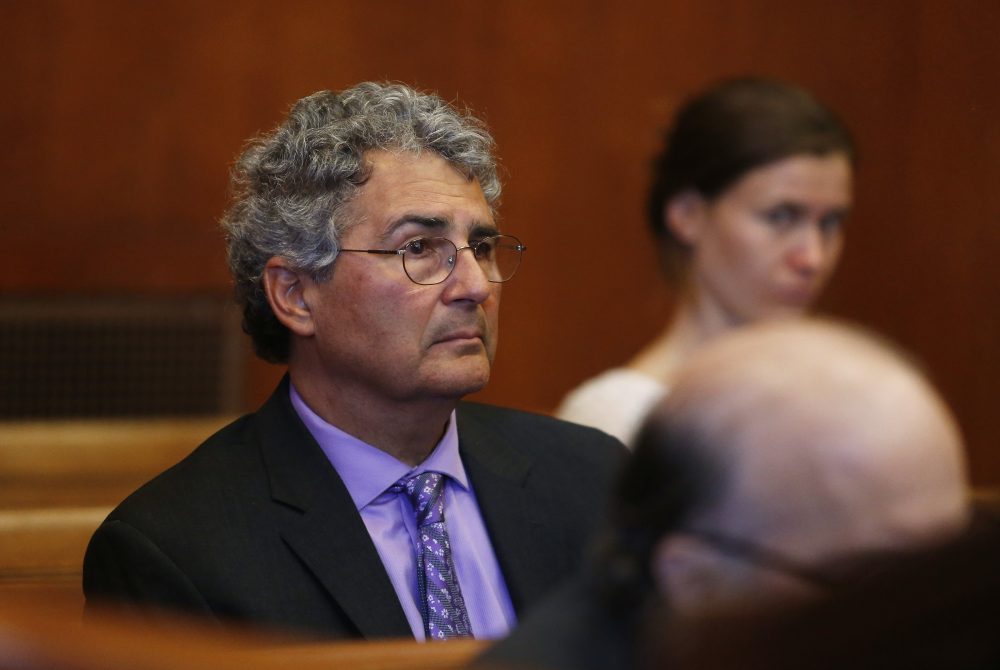Advertisement
Mass. Court Rules Patients Don't Have A Right To Physician-Assisted Suicide, But Doctors Can Discuss It

Terminally ill patients do not have a constitutional right to physician-assisted suicide, a Massachusetts court has ruled, but their doctors may provide advice and information about medical aid in dying.
The ruling comes in a civil case brought by Dr. Roger Kligler, a retired Cape Cod physician who has advanced prostate cancer, and Dr. Alan Steinbach, who treats terminally ill patients.
"This court has immense compassion for Dr. Kligler's desire to avoid a potentially painful death and for Dr. Steinbach's desire to ease his patients' suffering," the ruling reads.
But the ruling rejects their arguments that medical aid in dying should not be considered manslaughter, while also concluding that sharing advice and information about it is permissible.
"We are disappointed by the ruling and plan to appeal it," said Kevin Díaz, chief legal advocacy officer for Compassion & Choices, which backed the suit.
"But we are happy that the attorney general's office abandoned its position that doctors could not share information with patients about the full range of end-of-life care options — including medical aid in dying in the 10 jurisdictions where it is authorized — and the court concurred that doctors have this free speech right," he said in a statement.
A spokeswoman for Massachusetts Attorney General Maura Healey said in a statement that the office has "considerable sympathy for Dr. Kligler and understands there can be a number of challenging issues that arise at the end of life. We are pleased that the Court agreed with our position that the Legislature, not a courtroom, is the most appropriate place to have a discussion about this important public policy issue."
The states that allow medical aid in dying include Oregon, California and Vermont. When Massachusetts voted on such an end-of-life measure in 2012, it narrowly lost, with 51% of voters against it and 49% in favor.
The issue has once again been debated in the state legislature in recent months.
At a court hearing in 2017, John Kappos, one of Kligler's attorneys, said the suit was asking the court "to say that medical aid in dying, when it's performed according to the medically recognized procedure, does not fall within the criminal laws of murder or manslaughter."
In other words, even though medical aid in dying has not been explicitly legalized, the suit asked the court to eliminate any risk of prosecution for doctors and patients. It also argued that patients should have the autonomy and liberty to determine their own health care.
State prosecutors pushed back against the lawsuit. Among their multiple arguments against it, Assistant Attorney General Robert Quinan pointed out that in the states that have passed medical aid-in-dying measures, they've included very detailed protections against potential abuse.
With the court "legislating from the bench, we would be missing all of these procedural safeguards," he argued.
The new ruling affirms that assisted suicide can be considered manslaughter, even if the patient self-administers the lethal medication without help from the doctor.
It also rejects the claims that the manslaughter law is too vague as applied to aid in dying, and that it is unfair to treat patients who take drugs to die differently from patients who stop eating and drinking to die.
The ruling concludes by noting that there's a strong consensus that the issue of medical aid in dying is best decided by lawmakers, not judges, and that there are strong arguments both for and against it.
"The legislature, not the court, is ideally positioned to weigh these arguments and determine whether and if so, under what restrictions, [medical aid in dying] should be legally authorized," Superior Court Justice Mary Ames wrote.
End-of-life expert Dr. Lachlan Farrow, who testified for the state, urged more focus on the larger issue, more options and more support for patients nearing death.
""The fundamental problem is thousands of people every year in the Commonwealth are confronting the end of their life, and they're scared because they don't know they will be taken care of the way they need to," he said.